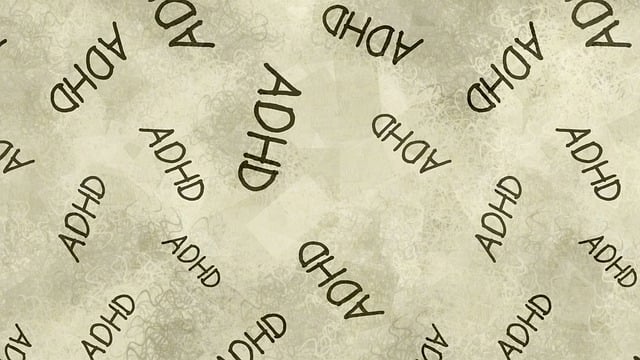Boulder Family Counseling Therapy (BFCT) places paramount importance on client safety through its comprehensive risk assessment process. They identify and mitigate potential risks, from physical accidents to emotional triggers, via detailed client history reviews and staff training. This approach drives the development of tailored Mental Wellness Education Programs, empowering individuals with tools for mental health self-management. BFCT's harm minimization strategy includes raising Mental Health Awareness, implementing early intervention workshops, and advocating for evidence-based practices. By staying informed on latest research and trends, BFCT continuously adapts its services, ensuring a proactive, supportive environment that fosters positive mental health outcomes for all clients.
In today’s complex social landscape, risk assessment and harm minimization are paramount in counseling settings, particularly in Boulder Family Counseling Therapy. This article guides professionals through a comprehensive approach to ensuring client safety. We explore fundamental concepts of risk assessment, delve into identifying potential hazards unique to family therapy, and provide practical strategies for developing robust harm minimization plans. By implementing these tactics, therapists can effectively manage risks and foster secure environments tailored to each family’s needs.
- Understanding Risk Assessment: A Cornerstone of Safe Environments
- Identifying Potential Hazards in Family Therapy Settings
- Developing a Comprehensive Harm Minimization Plan
- Implementation Strategies for Effective Risk Management
- Continuous Evaluation and Adaptation: Ensuring Client Safety Firsthand
Understanding Risk Assessment: A Cornerstone of Safe Environments

Risk assessment is a fundamental process that serves as the bedrock for creating safe and supportive environments, especially in settings like Boulder Family Counseling Therapy. It involves meticulously evaluating potential hazards and their likelihood to cause harm, enabling professionals to take proactive measures for harm minimization. By thoroughly understanding the risks inherent in various situations, counselors and therapists at Boulder Family Counseling Therapy can develop comprehensive strategies that safeguard individuals’ well-being.
This meticulous approach goes beyond simply identifying dangers; it encompasses analyzing the context, behaviors, and factors contributing to risk. The result is a tailored plan for intervention and prevention, fostering an environment where mental wellness coaching programs development can thrive. Moreover, by integrating self-esteem improvement techniques and promoting mental health awareness, Boulder Family Counseling Therapy ensures that its services not only mitigate risks but also empower individuals to lead healthier, more fulfilling lives.
Identifying Potential Hazards in Family Therapy Settings

In the tranquil setting of Boulder Family Counseling Therapy, identifying potential hazards is a meticulous yet indispensable process for ensuring safe and therapeutic environments. These settings, while aiming to foster mental wellness, are not immune to various risks that could negatively impact clients’ well-being. Therefore, proactive identification and management of these risks are crucial. Potential hazards can manifest in diverse forms, ranging from physical safety concerns like slip-and-fall accidents to emotional triggers such as stressful discussions or past traumas being brought to the surface.
Effective risk assessment for Boulder Family Counseling Therapy involves a multifaceted approach. It entails meticulously reviewing each client’s history and current circumstances to anticipate potential risks. This includes understanding familial dynamics, pre-existing mental health conditions, and any recent stressors. Furthermore, regular staff training on communication strategies tailored to handle sensitive topics is integral to harm minimization planning. By integrating these measures, Boulder Family Counseling Therapy can effectively design Mental Health Education Programs that not only promote mental wellness but also mitigate potential harms, creating a nurturing and secure environment for all clients.
Developing a Comprehensive Harm Minimization Plan

Implementation Strategies for Effective Risk Management

Implementing effective risk management strategies is a cornerstone of successful harm minimization planning, particularly within the context of Boulder Family Counseling Therapy. One key approach involves fostering Mental Health Awareness among all stakeholders—clients, therapists, and the broader community. This includes educating individuals about common mental health issues, signs of distress, and available resources to encourage early intervention and proactive support. For instance, regular workshops or seminars can provide practical Empathy Building Strategies, empowering people to recognize and respond sensitively to peers’ struggles.
Additionally, advocacy plays a pivotal role in risk assessment and management. Professionals in the field should engage in Mental Health Policy Analysis to identify gaps and advocate for evidence-based practices that promote well-being. By combining these strategies, Boulder Family Counseling Therapy can create a supportive ecosystem where risks are proactively managed, and harm minimization becomes an integral part of overall mental health promotion, ensuring a healthier and more resilient community.
Continuous Evaluation and Adaptation: Ensuring Client Safety Firsthand

At Boulder Family Counseling Therapy, we understand that mental health treatment is an evolving process that demands continuous evaluation and adaptation to ensure client safety firsthand. Our team remains steadfast in their commitment to staying abreast of the latest research, trends, and best practices within the field of Mental Health Policy Analysis and Advocacy. By integrating these insights into our services, we aim to foster a proactive approach to burnout prevention, aligning with the foundational Mind Over Matter principles that guide our practice.
Through regular review and reassessment of treatment plans, we identify areas for improvement and implement necessary adjustments to meet the dynamic needs of our clients. This ongoing cycle of evaluation enables us to stay ahead of emerging challenges, providing a supportive and responsive environment conducive to positive mental health outcomes.
Risk assessment and harm minimization planning are vital components in creating safe environments, particularly within family therapy settings. By understanding potential hazards and implementing comprehensive strategies, such as those outlined for Boulder Family Counseling Therapy, practitioners can ensure client safety and foster a supportive therapeutic atmosphere. Continuous evaluation and adaptation are key to successful risk management, allowing practices to evolve and meet the unique needs of each client.








